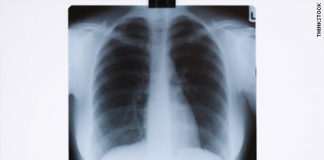Some Bisphosphonates Users Unfamiliar With Drug’s Possible Side Effects On Oral...
People undergoing bisphosphonate therapy to prevent or treat osteoporosis (a thinning of the bones) may be unfamiliar with the drug and possible adverse side effects on oral health, according to a study in the May issue of the Journal of the American Dental Association (JADA).
Common Osteoporosis Drugs Are Associated With A Decrease In Risk Of...
Women who take some types of bone-building drugs used to prevent and treat osteoporosis may be at lower risk of breast cancer, according to a study by U.S. researchers published in the British Journal of Cancer.
Quantity Vs. Quality: Long-Term Use Of Bone-Building Osteoporosis Drugs
Bisphosphonate treatments, proven to enhance bone density and reduce fracture incidence in post-menopausal women, may adversely affect bone quality and increase risk of atypical fractures of the femur when used for four or more years, according to preliminary research presented at the 2010 Annual Meeting of the American Academy of Orthopaedic Surgeons (AAOS).
Osteoporosis Drugs May Boost Cancer Risk
People who take bisphosphonates, or bone-strengthening drugs for osteoporosis, may have a slightly higher risk of developing esophageal cancer, especially if they take them for several years, a study out this week in the British Journal of Medicine finds.
Increased Risk Of Death In Men With Insomnia And A Short...
A study in the Sept. 1 issue of the journal Sleep found an elevated risk of death in men with a complaint of chronic insomnia and an objectively measured short sleep duration. The results suggest that public health policy should emphasize the diagnosis and appropriate treatment of chronic insomnia.
Chronic Insomnia With Short Sleep Duration Is Significant Risk Factor For...
A study in the April 1 issue of the journal SLEEP is the first to demonstrate that chronic insomnia with objectively measured short sleep time is an independent and clinically significant risk factor for hypertension.
Insomnia With Short Sleep Duration Is A Risk Factor For Diabetes
Individuals with insomnia and objective short sleep duration are at increased risk for developing diabetes, according to a research abstract that will be presented on June 9, at Sleep 2009, the 23rd Annual Meeting of the Associated Professional Sleep Societies.
Midlife Coffee And Tea Drinking May Protect Against Late-Life Dementia
Stockholm, Sweden -- Midlife coffee drinking can decrease the risk of dementia/Alzheimer's disease (AD) later in life. This conclusion is made in a Finnish Cardiovascular Risk Factors, Aging and Dementia (CAIDE) Study published in the Journal of Alzheimer's Disease.
Moderate Coffee Consumption Improves Aortic Distensibility In Hypertensive Elderly Individuals, Study...
A detailed study conducted by a team from the University of Athens on the Aegean island of Ikaria has demonstrated that moderate consumption of coffee by hypertensive elderly individuals can lead to improvements in aortic distensibility, according to a presentation at the European Society of Cardiology's Congress 2010 in Stockholm.
New Evidence That Drinking Coffee May Reduce The Risk Of Diabetes
Scientists are reporting new evidence that drinking coffee may help prevent diabetes and that caffeine may be the ingredient largely responsible for this effect. Their findings, among the first animal studies to demonstrate this apparent link, appear in ACS' Journal of Agricultural and Food Chemistry.













